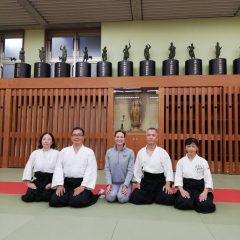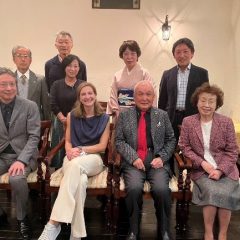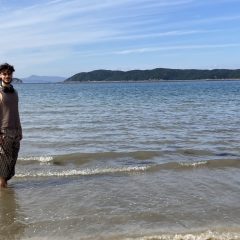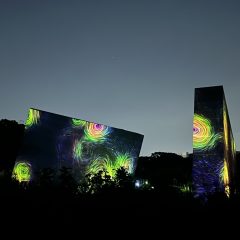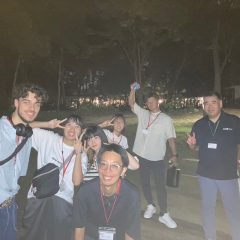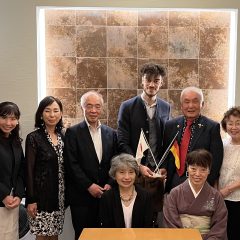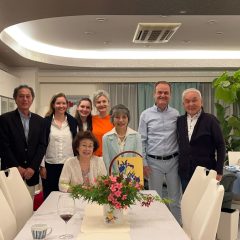☆☆☆ Fifth report from Christina Neumayer, twentieth scholar of the Grünwald foundation ☆☆☆
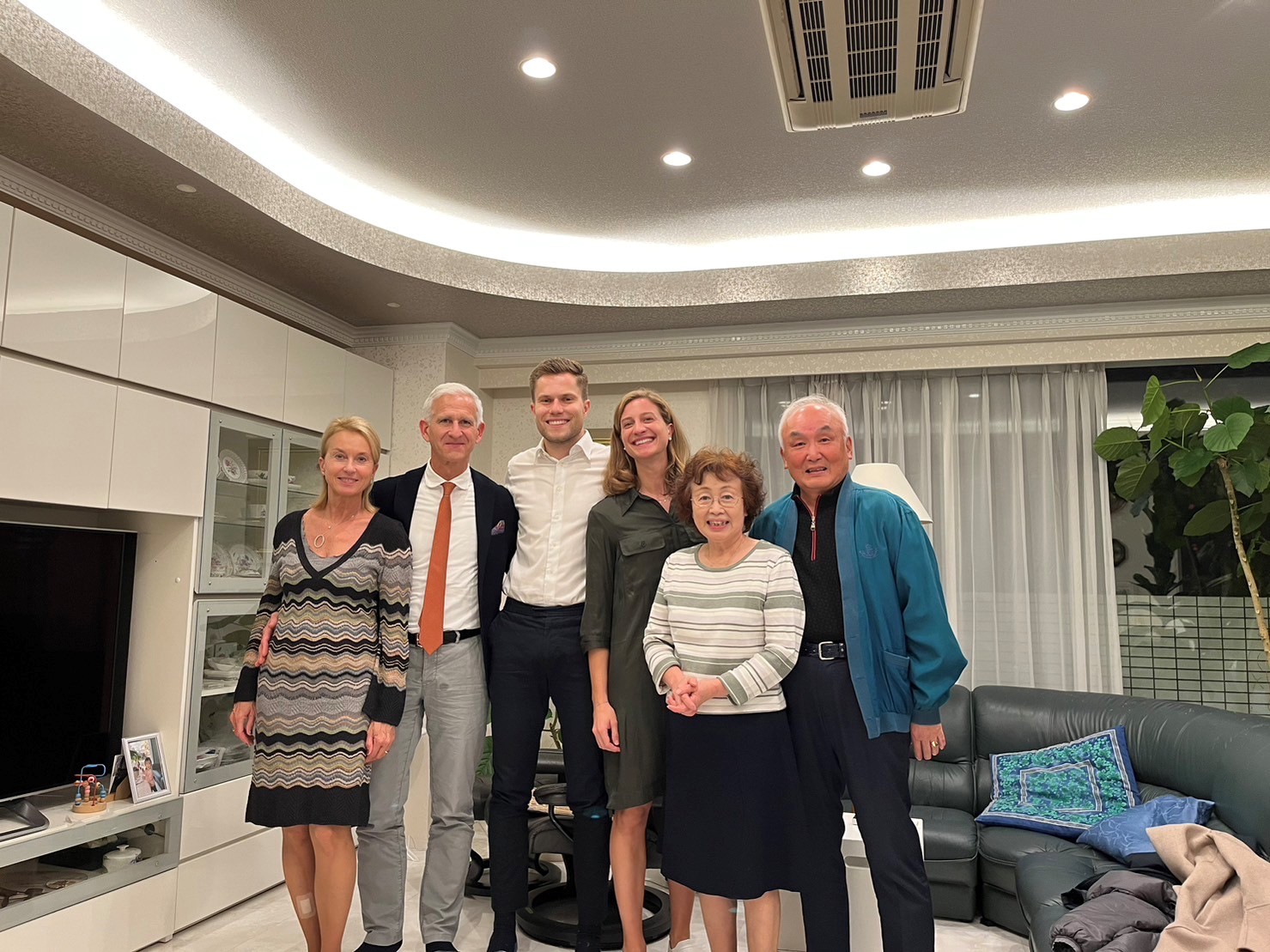
The last month is dedicated to exploring more places and cities in Japan. So, I’m excited to have been on a trip with my parents and boyfriend, because it wasn’t sure if they could come to Japan for a long time due to the entry regulations. Since 11 October, tourists are allowed to enter the country again and some of the places we visited were consequently more crowded – especially compared to my experiences the weeks before, where I was the only Westerner and always stood out. To boost tourism even more, the Japanese state also financially supports domestic travel for its citizens, I am very happy to see the UNESCO World Heritage Sites and cities filled with culturally interested and excited people.
Our journey throughout Japan began in Osaka, where Mr Okamoto and I picked up my parents and my boyfriend at Itami airport. Within the first few minutes, the guests experienced Mr Okamoto’s extraordinary hospitality and realised how wonderful it is to arrive in a foreign country and be so warmly welcomed and greeted by friends.
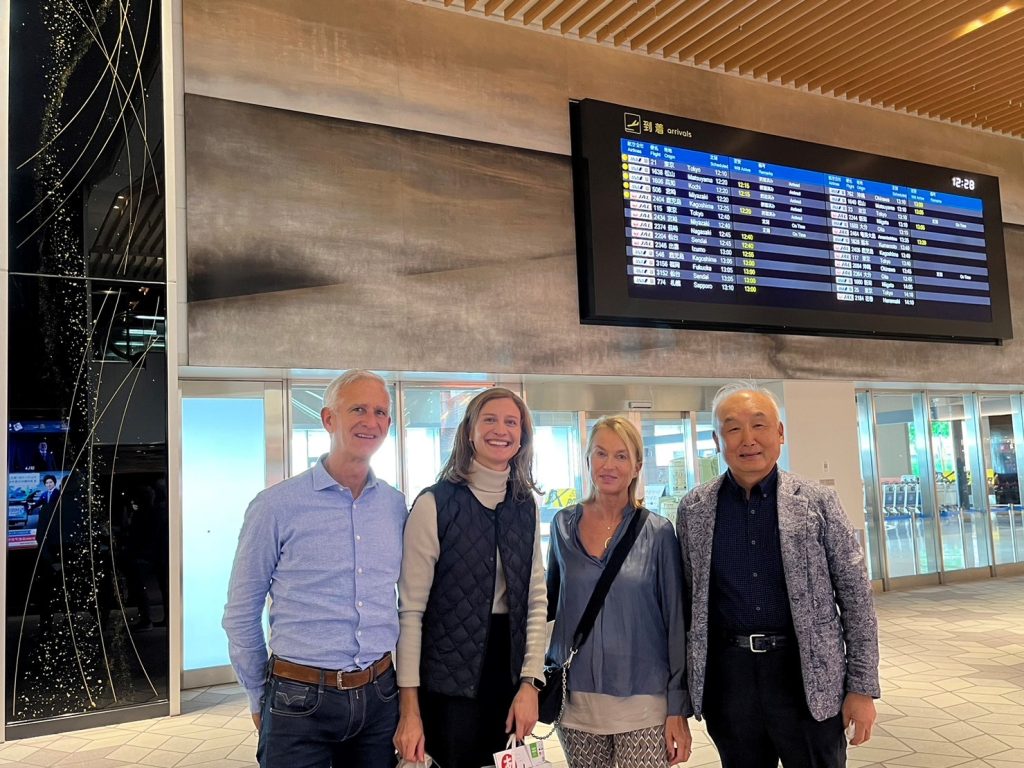 Arrival of my parents in Osaka
Arrival of my parents in Osaka
Mr Okamoto invited us to his home on the first evening. The dinner together with my Japanese and German family was very pleasant, because even though the two countries are very far apart, there is a close connection between the cultures and people, and I am happy to have strengthened this connection even more during this evening. The excellent conversations and personal anecdotes will remain in our memories forever.
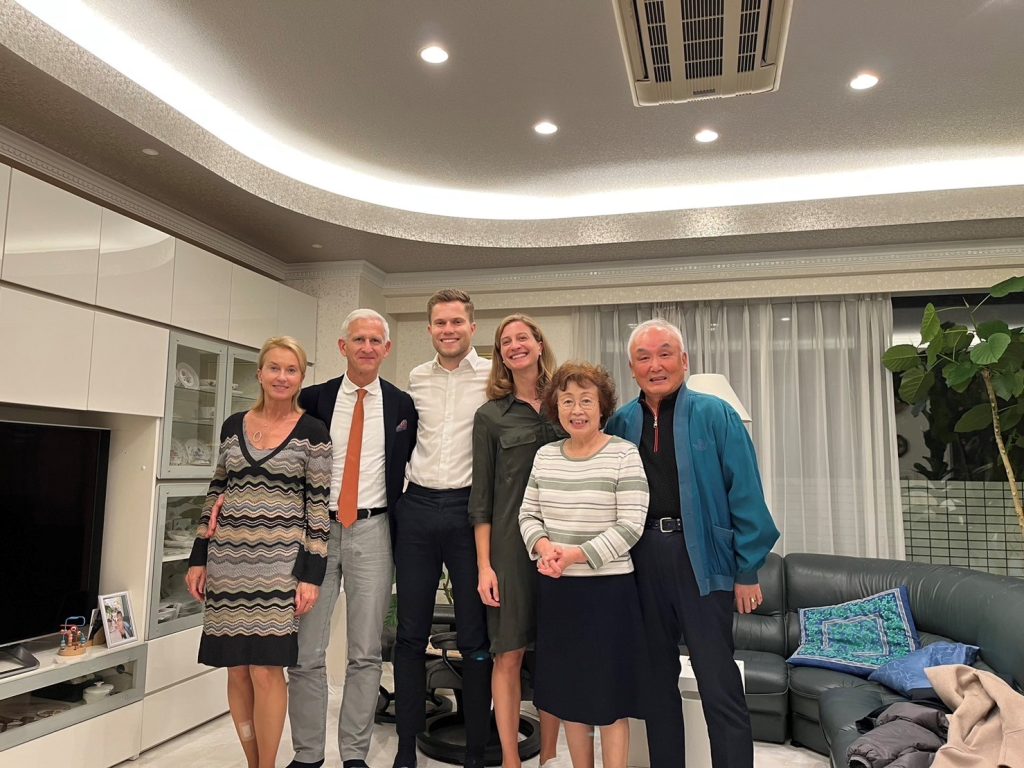 Dinner with Mr. and Mrs. Okamoto
Dinner with Mr. and Mrs. Okamoto
Based in Osaka, we made excursions to Hiroshima, Himeji Castle and Nara. Then we visited Kyoto and continued our journey via Hakone near Mount Fuji to Tokyo, from where we made a day trip to Nikko. We were able to make the entire journey very comfortably by Shinkansen, which always got us from A to B on time and very quickly. Every time I travel with the Bullet train I am amazed to see how smooth and well organised the rail transport in Japan is and my family is also amazed… After we started the trip with a very comfortable and enjoyable evening with the Okamoto family, we also had the honour to spend our last evening with them. We went to a Japanese dinner together at the Esquire Club in Osaka and philosophised about the importance of intercultural exchange for world peace. Once again I realised how unique this exchange of the Grünwald Foundation is.
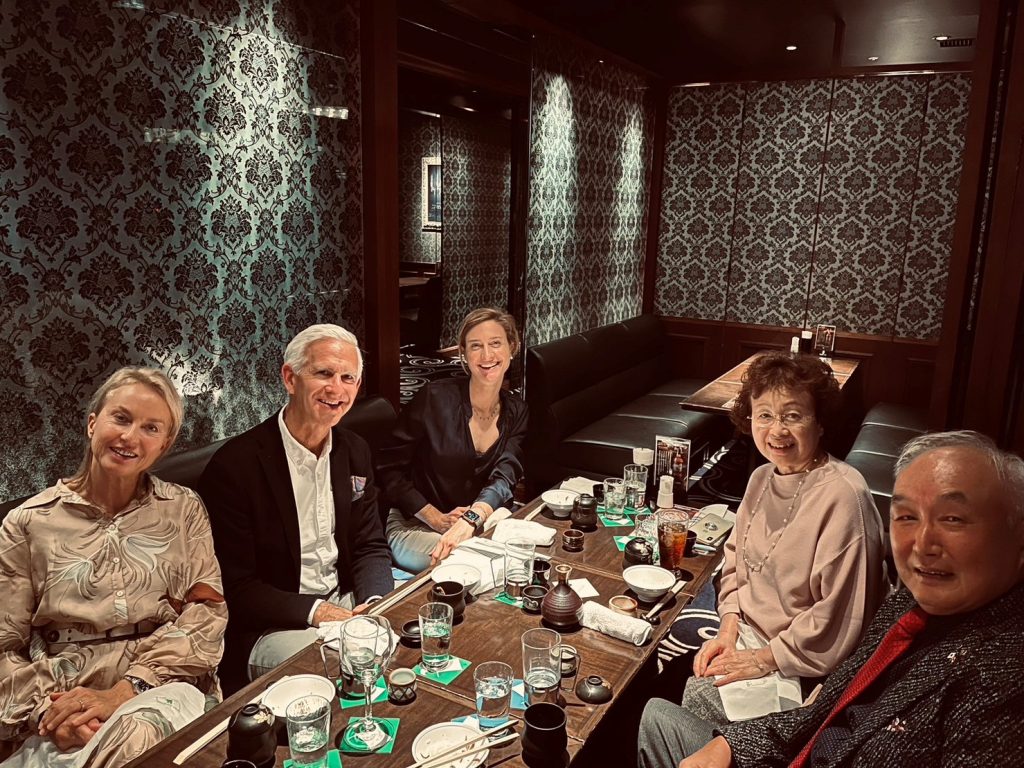
Last dinner with Mr. And Mrs. Okamoto in Osaka
During this journey across Japan, one is reminded once again of the diversity and excitement that this country has to offer. In particular, the contrast between tradition and modernity is striking, as revealed by the many unique temples and shrines alongside the most modern cities and the truly impressive transport network, including the Shinkansen express train. The differences between the pristine tranquillity of nature and the crowded cities are also remarkable, as we were able to experience both the meditative area at the foot of Mount Fuji and crossing the Shibuya intersection in Tokyo, where up to a thousand people walk every minute.
After travelling through Japan together with my parents and my boyfriend, I would like to share a few impressions and opinions of them as well. Even though they were only here for about 15 days, they noticed four things in particular, which coincide with my own feelings and experiences: The politeness, the helpfulness, the punctuality and the openness. We noticed the politeness in several areas, because the Japanese treat each other very respectfully and considerately. This behavior is visible in everyday life and, as we noticed, it is also essential for the functioning of society here. Japan has the largest city in the world, Tokyo, and the 10th largest metropolitan region in the world, the region around Osaka. Due to its geography, Japan does not have much space, so all the people and all the industry are concentrated in a small area. Without the appropriate order and consideration, living together would be much more stressful and difficult. For this reason, the Japanese always keep places they have been to very clean and tidy, for example, public toilets are as clean as at home and everyone always takes their rubbish back to their home. The Japanese also avoid talking loudly on public transport and in large crowds. The collective thinking here means that everyone keeps to themselves and shows consideration for their fellow human beings.
The helpfulness is expressed both towards foreigners and in the society in the country. We as Westerners naturally stood out, but every time we looked lost, a local person offered to help, whether on the train platform when we didn’t know which train to take, or in the shopping centre where the floors were written in Japanese characters – every time someone helped us. In the country itself, you also notice the great willingness to help in the way the Japanese interact with each other; everyone is attentive and they always try to integrate everyone into society. Older people in particular are always integrated into everyday life with small tasks and “jobs” and can thus pursue a mission.
The punctuality, especially of public transport, but also of appointments is also noticeable. These too are explained by the collectivism and togetherness of society. Cities and living together can only function so well because of reliability and punctuality, because spillovers would also have a much greater effect here due to the large number of people. Because of the punctuality and reliability of the means of transport, the majority of Japanese also use them on a daily basis. This is particularly noticeable in Tokyo; despite the 36 million inhabitants, there are only a few cars (one car for every 4 people, for comparison, in Hamburg it is 1 car for every 2 people) and traffic jams are rare. As a result, the city is very quiet despite the many people and the air is clean. The entire transport infrastructure simply works very well here. But it was also planned directly after the Second World War with great future prospects and the goal of economic and sustainable upswing and is still being developed very precisely and thoughtfully today and is extremely well supported financially by the state.
Finally, we talked a lot about the openness of the Japanese towards us foreigners. People like to share their history and talk about their culture and religion. Especially during our trip to Hiroshima, we got very personal and touching insights into the family history of a descendant of the atomic bomb attack on the city.
The 2 weeks passed very quickly as we had unique and unforgettable experiences. We are all impressed by the country, the culture, the food, the people… and will miss it very much. With our souvenirs and personal experiences, we will bring a little bit of Japan to Germany and give other people insights into this wonderful culture.

